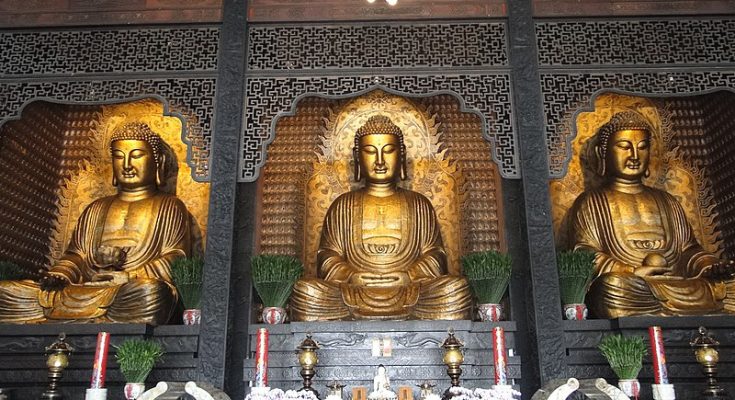#HumanisticBuddhism, #China, #CCP
Beijing/IBNS-CMEDIA: On September 21 and 22, 2024, Shanghai’s Jade Buddha Temple hosted a national forum on the “theory and practice of humanistic Buddhism.”
The event featured speakers from the United Front Work Department and the state-controlled China Buddhist Association.
Venerable Changzang, who represented the absent Master Yanjue, President of the China Buddhist Association, praised Shanghai as “the birthplace of humanistic Buddhism.”
He further claimed that “humanistic Buddhism” and “Sinicized Buddhism” are identical, asserting that humanistic Buddhism has always been about aligning with the most progressive ideologies of the time.
Today, according to Changzang, that ideology is the Chinese Communist Party’s (CCP) Marxism as articulated by Xi Jinping.
He insisted that both Sinicized and humanistic Buddhism should adapt to Xi Jinping Thought.
It is historically true that Shanghai was central to the development of humanistic Buddhism, as Master Taixu, a key figure in its evolution, taught there in the final years of his life before passing away at the Jade Buddha Temple in 1947.
However, according to a participant who spoke to online magazine Bitter Winter, mentioning Taixu’s role was the only accurate part of Changzang’s speech. The rest of the forum, they said, was misleading.
Taixu’s vision of humanistic Buddhism was not about adapting to anti-religious ideologies like Marxism.
Instead, he advocated for a Buddhism that emphasized social service and alleviating human suffering, moving away from purely ritualistic practices.
This genuine form of humanistic Buddhism could not thrive under the authoritarian rule of the CCP.
In fact, many of Taixu’s followers fled to Taiwan, where institutions like Tzu Chi, Fo Guang Shan, and Dharma Drum Mountain emerged, staying true to the original principles of humanistic Buddhism.
While some of these organizations maintain pragmatic ties with China, they are certainly not guided by Marxism or Xi Jinping Thought.
As Bitter Winter has previously reported, the CCP is attempting to co-opt the term “humanistic Buddhism” by equating it with “Sinicized Buddhism.”
In doing so, they are stripping the concept of its original meaning and replacing it with the ideology of Xi Jinping’s Marxism.
This is essentially a deceptive effort, carried out with the support of the China Buddhist Association, to redefine and control the narrative of humanistic Buddhism.





